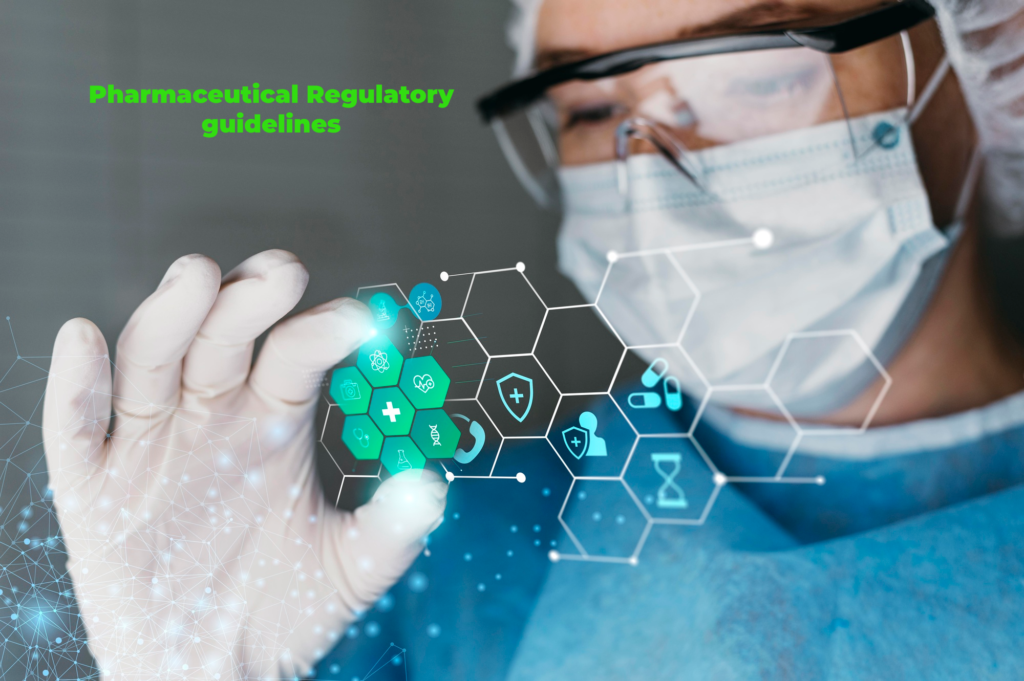Industry Trends: Staying Informed for Pharma Job Interviews
- Discuss the importance of staying updated on pharmaceutical industry trends and how it can enhance a candidate’s performance in interviews.
Introduction
The pharmaceutical industry operates in a realm of constant evolution, where staying informed about industry trends is not just a choice but a necessity. As the landscape of pharmaceuticals transforms rapidly, job seekers must be well-versed in the latest developments to stand out in interviews. This article explores the strategies for staying informed about industry trends and leveraging this knowledge for success in pharmaceutical job interviews.
Utilizing Reputable Sources for Industry Updates
Reliable Pharmaceutical News Websites
Stay connected with reputable pharmaceutical news websites. Platforms like FiercePharma, PharmaTimes, and Stat News provide real-time updates on industry news, breakthroughs, and regulatory changes.
Industry Publications and Journals
Regularly read industry publications and journals. Publications like The Pharmaceutical Journal and BioPharm International offer in-depth insights into research, development, and market trends.
Subscribing to Newsletters and Alerts
Subscribe to newsletters and alerts from industry sources. This ensures that crucial information is delivered directly to your inbox, allowing you to stay informed without actively seeking updates.
Networking and Professional Associations
Engaging with Industry Professionals on Social Media
Actively engage with industry professionals on social media platforms like LinkedIn and Twitter. Participate in discussions, follow thought leaders, and stay connected with the pulse of the pharmaceutical community.
Participating in Pharma-Related Forums and Groups
Join forums and groups dedicated to pharmaceutical discussions. Platforms like Cafepharma and PharmaVOICE offer opportunities to connect with professionals, share insights, and discuss emerging trends.
Joining Professional Associations and Attending Events
Become a member of professional associations such as the Regulatory Affairs Professionals Society (RAPS) or the International Society for Pharmaceutical Engineering (ISPE). Attend industry events and conferences to network and stay informed about the latest developments.
Following Key Influencers and Thought Leaders
Identifying Influential Figures in the Pharmaceutical Sector
Identify influential figures shaping the industry. Individuals like Dr. Scott Gottlieb and Emma Walmsley provide valuable perspectives on regulatory changes, market dynamics, and technological advancements.
Following Thought Leaders on Social Media Platforms
Follow thought leaders on social media platforms to receive their insights directly. Twitter, in particular, is a hub for industry discussions, with experts frequently sharing their thoughts and analyses.
Learning from Experts Through Webinars and Podcasts
Attend webinars and listen to podcasts featuring industry experts. Platforms like PharmExec and Regulatory Focus often host webinars, providing a convenient way to stay informed about the latest trends.
Understanding the Impact of Technology
Embracing Digital Transformation in the Pharmaceutical Industry
Stay informed about digital transformations within the industry. Understand how technologies like blockchain, artificial intelligence, and digital therapeutics are reshaping drug development and patient care.
Familiarity with Advancements in Drug Development Technologies
Be knowledgeable about advancements in drug development technologies, such as CRISPR gene editing, 3D printing of pharmaceuticals, and continuous manufacturing processes.
Navigating the Integration of Artificial Intelligence and Data Analytics
Recognize the increasing role of artificial intelligence and data analytics. Explore how these technologies are enhancing drug discovery, optimizing clinical trials, and improving supply chain management.
Regulatory Changes and Compliance
Staying Informed About Evolving Regulatory Landscapes
Keep a close eye on evolving regulatory landscapes. Regularly check updates from regulatory bodies such as the FDA, EMA, and WHO to stay informed about changes affecting drug development and marketing.
Understanding the Impact of Compliance on Pharmaceutical Operations
Understand the impact of compliance on pharmaceutical operations. Familiarize yourself with current Good Manufacturing Practices (cGMP) and other quality standards to demonstrate your commitment to regulatory adherence.
Recognizing the Significance of Adherence to Quality Standards
Recognize the significance of adherence to quality standards in pharmaceutical manufacturing. Be prepared to discuss how compliance impacts product quality, patient safety, and overall industry credibility.
Shifts in Drug Development and Research
Exploring Innovations in Drug Discovery Processes
Stay updated on innovations in drug discovery processes. Explore advancements in high-throughput screening, target identification, and precision medicine to showcase your awareness of modern research methodologies.
Recognizing Trends in Clinical Trial Methodologies
Be aware of trends in clinical trial methodologies. Understand the growing importance of virtual trials, decentralized clinical trials, and adaptive trial designs in shaping the future of clinical research.
Adapting to Advancements in Personalized Medicine
Acknowledge the increasing focus on personalized medicine. Recognize how genomics, biomarkers, and patient-specific therapies are influencing the development and commercialization of pharmaceutical products.
Market Dynamics and Commercialization Strategies
Analyzing Market Trends and Competition
Analyze market trends and competitive landscapes. Stay informed about blockbuster drugs, market expansions, and emerging players to demonstrate your understanding of the broader pharmaceutical market.
Understanding Strategies for Successful Drug Commercialization
Understand strategies for successful drug commercialization. Familiarize yourself with market access considerations, pricing strategies, and the role of market access teams in product launch success.
Adapting to Changes in Pharmaceutical Market Dynamics
Adapt to changes in pharmaceutical market dynamics. Discuss how industry shifts, such as the rise of biosimilars or changes in reimbursement policies, may impact commercialization strategies.
Environmental and Sustainability Considerations
Awareness of the Pharmaceutical Industry’s Environmental Impact
Be aware of the environmental impact of the pharmaceutical industry. Recognize initiatives and practices within companies aimed at reducing the industry’s carbon footprint and promoting sustainability.
Incorporating Sustainability Considerations in Drug Development
Acknowledge the growing importance of sustainability in drug development. Discuss how companies are integrating environmentally friendly practices in manufacturing, packaging, and distribution processes.
Recognizing the Importance of Corporate Social Responsibility
Recognize the importance of corporate social responsibility (CSR) in the pharmaceutical sector. Understand how companies are addressing social and environmental concerns to contribute positively to society.
Career Growth and Skill Development Trends
Identifying Skills in Demand Within the Pharmaceutical Sector
Identify skills in demand within the pharmaceutical sector. Stay attuned to job postings, industry reports, and discussions to understand the skills that companies are actively seeking in new hires.
Pursuing Continuous Learning and Professional Development
Demonstrate a commitment to continuous learning and professional development. Showcase any certifications, workshops, or courses you’ve undertaken to enhance your skills and stay relevant in a rapidly evolving industry.
Adapting to Evolving Career Paths in the Industry
Acknowledge the evolving nature of career paths in the industry. Be open to exploring roles that may not have existed a few years ago, showcasing your flexibility and willingness to adapt to changing industry demands.
Case Studies and Success Stories
Learning from Successful Pharmaceutical Companies
Study successful pharmaceutical companies and their strategies. Explore case studies of companies that have navigated challenges successfully, identifying key factors that contributed to their success.
Analyzing Case Studies of Breakthrough Drug Developments
Analyze case studies of breakthrough drug developments. Understand the journeys of successful drugs from discovery to commercialization, highlighting the factors that led to their success.
Understanding the Strategies Behind Successful Industry Leaders
Understand the strategies employed by industry leaders. Learn from the experiences of CEOs and executives who have navigated the complexities of the pharmaceutical sector, gaining insights into effective leadership.
Applying Industry Trends in Job Interviews
Incorporating Industry Trends into Resume and Cover Letter
Integrate relevant industry trends into your resume and cover letter. Highlight experiences, skills, and knowledge that align with current pharmaceutical trends, showcasing your readiness for the challenges of the industry.
Discussing Relevant Trends During Job Interviews
During job interviews, actively discuss relevant industry trends. Connect your experiences and achievements to current industry demands, demonstrating your ability to contribute meaningfully to the company’s goals.
Aligning Personal Experiences with Current Industry Demands
Align your personal experiences with current industry demands. Whether discussing project management, regulatory affairs, or research, emphasize how your skills and insights align with the dynamic nature of the pharmaceutical landscape.
Conclusion
In the fast-paced world of the pharmaceutical industry, staying informed about industry trends is not just a professional enhancement but a career imperative. Job seekers must proactively seek knowledge, engage with industry influencers, and adapt to the ever-changing landscape. Continuous learning, coupled with a strategic approach to incorporating industry trends into job interviews, positions candidates as valuable assets ready to contribute to the advancements and challenges of the pharmaceutical sector.


